We need to have trust in our armed forces: India’s External Affairs Minister
India’s External Affairs Minister S. Jaishankar is the man in the spotlight this weekend on TIMES NOW as both Pakistan and China breathe down India’s neck. In an intense exclusive interview with Rahul Shivshankar, TIMES NOW’s Editor-in-Chief the minister shares his views on crafting “The India Way” to develop “Strategies for An Uncertain World”. As India waits for clarity on the border stand-off watch the riveting interview, Jaishankar’s first after returning from Moscow where he held crucial one-on-one talks with China’s foreign Minister Wang Yi.
He has recently released a book ‘The India Way’, a treatise on what India needs to do to overcome the challenges posed by a rapidly changing world order. The interview will air on Converse India on TIMES NOW this Saturday, September 26 at 8pm and repeat on Sunday at 12pm and 6pm.
RAHUL SHIVSHANKAR: On this edition of Converse India viewers we are fortunate to be speaking to India's scholarly External Affairs Minister Mr.S Jaishankar who has had vast experience as a career diplomat. And of course, he is speaking to us and he will be endeavouring to be candid at a time when we have some challenges on the foreign policy front. But most importantly he's just captured all his thoughts in a very educative book Called the India way. Mr.S Jaishankar Welcome to Times Now. Your book ‘The India Way’, gives us a very interesting view Of the challenges that India might encounter as we move forward in a rapidly transforming world. In fact, in the chapter The Art of the disruption and I have this book right here in front of me you pose the question I'm quoting "What can India do to advance its goals in this disruptive world. Much of what that would depend on its handling of the two principal actors the US and China." You then go on to a critique of the excessively cautious approach taken thus far implying that we need to be more active so that we don't once again lose the chance to make more than incremental gains. So let me ask you Mr.S Jaishankar what would a more assertive policy look like.
Mr.S Jaishankar : Well let me answer that in different ways because that's what the book in a sense does. One, if we ought to advance our interests which is what I argue, We Obviously need to build our capabilities better deep strengths we need to find better ways of dealing with major players /competitors etc and we need to change the landscape. People need to do all three now in the past. You know some of it was because our capabilities were less. I would argue our confidence was also less. What we actually saw was that we be very cautious about you know in a sense shaping the larger negative
RAHUL SHIVSHANKAR: Right.
Mr.S Jaishankar : Now. Today I think that sense that we could be not involved. I think that we have to put it behind us. I mean we can’t behave the same way as the fifth largest economy or the third largest economy which we will be one day as we've had when we were the 10th or the 15th largest economy in the world. It's not just economics. I mean today we are doing so much more in our neighbourhood beyond our neighbourhood on the big global issues. So you know the case I make essentially is you know step out, shape the world more actively engage other players more confidently be much clearer about what our own interests are, And try and you know advance them
RAHUL SHIVSHANKAR: In your second chapter Mr.S Jaishankar in the context of us in China. You write and I quote "in the ultimate analysis the ability of major powers to reach accommodation will shape our times when black swans meet grey rhinos. The very nature of the habitat undergoes transformation". Now how is the habitat changed. If I may and extending the metaphor for the Indian elephant
Mr.S Jaishankar : Well I think the Indian elephant is realizing that the jungle and even the laws of the jungle if you would are actually very very different. A lot of it obviously is going to depend on the relationship between the US and China because I think that's going to be in many ways the overarching issue which the world will have to confront but it's when I say that you know the major powers it's not just US and China. I think. We are going to see you know much more sharper national positions across the world. You already have not easy relationship between the US and Russia and the West as a whole. I mean India China relations are definitely more complicated and Asia itself you know there are many other examples of relationships which are sharper than they used to be. So I think my message is you know for all the talk about globalization and I think globalization was in a sense conceived in a fundamentally flawed way.
We have actually entered a world of shop and national identities. It could be at a global level it could be at a regional level. As I said as a Turkey as an Iran you look at what's happening in the Gulf. So you're going to get you know a much sort of sharper rub of this shall I say contradictions and frictions. So be prepared. Be prepared for a more difficult world possibly a bumpier ride and again I repeat it's not just about us. It's about the larger environment now. And I think as I said the habitat is going to be very different we've seen some very very unexpected events I mean I rank the 2016 American election and Brexit as two examples, but we've also seen the unfolding events whose consequences were not anticipated like the rise of China whose impact was vastly underestimated by much of the international community and by many people in India.
RAHUL SHIVSHANKAR: Well that's interesting because you do write "however that we have entered a turbulent phase which is what you have just told us where a new kind of politics is being fashioned. The issue is not whether India will continue rising that Victor is reasonably assured. The question is how to do so optimally in the era of great uncertainty". Now is this the new kind of politics that you speak off. Is it predicated on India that is more Bharat. What you trying to say when you talk about nationalisms more self-interests
Mr.S Jaishankar : Yes. Partly, about again it is partly we are looking at a world where you are going to see much sharper competition and we have to understand. That you know it's either the human tendency is to go back. You know some years ago, for example we had this view advanced of non-alignment 2.0. ok We aren't in that non-alignment era. If today I mean first of all the world is much less bipolar and will be much less bipolar. Secondly that China isn't the Soviet Union. Definitely from our perspective it is not. So, One part of the argumentation is look at this world in a sense you know much more multi aligned way and try to find touch points common areas where different paths and use that to to get your work done but the other part which you raised you know an India that is more Bharat is actually a phrase I use in the book. We need to think for ourselves. We need to be more comfortable with who we are what we are. Make our own judgments are our decisions should not be you know what will other people sitting somewhere else approve or disapprove of. I grant you. I mean in international relations. Keeping relationships smooth this is part of the part of the job but th t ability to sort of diagnose for yourself devise solutions for yourself and some of that you know is as I say much more independent. I would say almost self-reliant mind. So for me that Atmanirbharta is a factor out there. But some of it is also an intellectual challenge. You know I've been we've had issues. Which we have for many hours and not addressed largely because that's the way we have been conditioned to do whereas our own interests I think demanded some something else and I would say to to some degree some of the political developments of the last year would be illustrative of that. So, if you know that if you are going to rise. OK and I say that director is a shot. We shouldn't think of it. In the last 20 years, we thought of it as political and primarily economic model which are true. But it's bigger than that. It is also cultural it is psychological. It is it is who shapes the narrative who puts forward their narrative. So, you know the rise of nations has a much broader bigger phenomenon than than just you know quantitative analysis
RAHUL SHIVSHANKAR: Mr. Jaishankar, many in this country are sceptical of the nationalist impulse. Let's not pretend that there are no critics out there of the manner in which the BJP has gone about shaping its own vision of what nationalism stands for. They come out and say that the projection of power both internally and externally leads to adventurism impulsiveness and brash jingoism. In that context you have said that nationalism should not be perceived as a negative emotion. But when these people see this how can it not be.
Mr.S Jaishankar : Well, I think the people who say this are frankly coming from a different place. Often from a different era or one would say even from a different culture and why I say that nationalism should not be perceived negatively and I speak for the for Indian nationalism. I mean to me nationalism is being rooted to the ground and advancing your own interests and I again I argued that Indian nationalism is it may if not one of a kind certainly should not be confused for others who are more insecure or defensive or insular. Because you know nationalism to me is an expression of self-confidence. It is cultural self-confidence political self-confidence. In India that makes us more ready to do more with a lot of it. You refer to the last few years. I would just look at our engagement in the last few years has a nationalistic in Bihar been more doing more or doing less with a lot. Of it look at the colonial period. We sent medicines out to 150 countries. Look at the humanitarian missions or the disaster relief missions we monitored across the Indian Ocean. I mean from Fiji to Mozambique. We are today seen as a first credible first responder in the region. Now that's not being insular. That's not being jingoistic. I don't think we should. Look I also and I dissect this problem in my book. There are certain regions where for because of historical experiences nationalism has a certain connotation. It can happen in parts of Europe but that's not us. In fact large parts of the world. You can go to Africa in Asia and tell people Don't be nationalistic because for them. Nationalism is actually part of a journey which began when they recovered their independence.
RAHUL SHIVSHANKAR: But what do you say to those people.
Mr.S Jaishankar : To me this is the next step.
RAHUL SHIVSHANKAR: OK but what do you say to those people Mr.S Jaishankar who criticized the government new part of the government. Now you're in Parliament to face the opposition at arm's distance because that's what we need to do in the corporate world. But sometimes it gets a bit too close for comfort and they do say that the nationalism that the BJP sort of espouses is one which is exclusive especially at home and it alienates minority denominations. You're not getting the whole country along and if people ask you questions about your actions whether they're projected outwards or inwards you are branded traitors. So how does that how does that fit in with what Mr.S Jaishankar is writing in the India way.
Mr.S Jaishankar : Look. I Know for this reason. What I am writing in India way is a very clinical dissection. Of a situation or era or you know or set of policies. The argument you are making is the is the politics of the day. You know I don't expect people in the opposition to tell wonderful I actually agree with you and I think nationalism is great and you know this is a very positive and helpful world view. Of course they will not and they will not because to a great degree they are actually coming out of a different viewpoint you know and I've been in my I mean look the reality is why is it that today the BJP has the kind of support which it has steadily built especially in the last few decades. Because I think today we reflect the aspirations of the country especially of the younger people. We are much more rooted to the ground as India has got more democratized. I mean just look competitively look at the kind of people today who are in the political leadership. They are very different. And I would argue much more than you know in a sense much more representative of the whole of the country. So, I think we must differentiate between politics and analysis.
RAHUL SHIVSHANKAR: OK. So, they're not ethnocentric. You're trying to say OK then that that brings me to the next question. How distinct then is India's idea of Atmanirbharta for instance from Trump's America First approach or she's China Dream and house isn't advantaging your own interests comparable to what some of these countries are doing. And sometimes in the process dating up the international you know order that is run to at least this day by a set of roots
Mr.S Jaishankar : No. Look first of all let's be very clear. We have not done anything. Which is why later of any international commitment. So, don't confuse us for other countries. Let me clarify that upfront. Second thing. Look. When we talk about Atmanirbharta what it I mean we are talking really of Building capacities at home Which will allow us to participate better Globally and why was it necessary. Because what we have seen especially over the last 20 years and especially you know you've seen it's sort of a clear economic reality. We've seen large parts of our economy you know manufacturing MSMEs actually take a big hit and we have seen you know sectors actually hollowed out. So today if we don't have an employment centric view of the economy, if we are not focused on building our own capabilities then I think our ability to compete in the world would be very much less.
I think the corona virus challenge brought back home very sharply. But look I'm part of the coronavirus group of ministers. But when this hit us we actually discovered we were not making PPE and we had I think two companies who had assembly or partly manufacturing masks. We were not doing testing. So something as white as health security was actually dependent on the goodwill of other countries. And when the chips are down you're not sure that goodwill is going to work anymore. And that's actually what we saw. So. The Idea today of Atmanirbharta is, I mean let me put it to you this way. Would you would you grudge me. My. My objective of building adequate national security. Of course, you will not. But I put it to you. You cannot have national security if you don't have basic economic security or as we discovered without health security. You need to have those capacities you can't let trading arrangements which are not fair Comment erode wipe out sectors of your industry and because it's politically correct I know everybody says oh I must also be globalized. So you'll actually vanish. You know you're watching sectors vanish before your eyes and then political correctness prevents you from recognizing that reality. So look this is art monitor but what it is is a much needed reality check. I think this country needs to wake up to the fact That if you want to be up pilot which counts in the world we must have capacities that count in the world right. Yes we must support our industry and you know are the working class the way other countries do. But look every other Government fights for its working class For its jobs. Why don't we. Well I think that's what it's about.
RAHUL SHIVSHANKAR: If you allow me to personalize this a little bit and give me the liberty listening to you it takes me back to when I was working in a very junior capacity to your father on the Edit page of The Times of India and of a different Avatar the legendary Mr. K. Subramanian. And he was a realist to put India first when it was perhaps not even fashionable to do so at least in this part of the world. How much did he influence you and your thinking Mr.S Jaishankar
Mr.S Jaishankar : Well look you know father's influence consciously or unconsciously if you are in the same line of business it obviously more than rubs off and I think what you say an awareness , which came later on but by osmosis you actually learn a lot of stuff. I grew up in a very political household in a way a very argumentative household and so after actually a first degree in science it was natural I viewed then towards political science and by the time I joined the Foreign Service in a way I guess I was intellectually a bit better prepared for it than many other people wouldn't have necessarily gone through those experiences and we continued to talk and argue you know till the last days of his life. He was very active eventually till he died. So of course, he was he was an influence. But at the same time the one thing I learned from him was keep challenging everything and everybody and you know all the time don't ever sit back and say you know I know the truth or I heard this from somebody and this is what it is and will always be that if there's one thing I thank him for it is that ability to be continuously self-critical And I mean I'm short it's perhaps a little annoying to people who work with me but I think it's a very good quality. I would say. He was a realist. Yes. He was a nationalist yes. But in today's context particularly because after you know Donald Trump put America first with a capital ‘F ‘.. I think my father would have put India with small ‘f ‘which is you know And I do that myself which just look we are driven by national interests and what is good for India and which we should be. We must also be considerate of the world. You know we must play the long game which means don't try to sort of handle it in a way in which there are too many bruises and hard feelings after a particular you know.
RAHUL SHIVSHANKAR: So definitely do challenges
Mr.S Jaishankar : So these are some of the issues
RAHUL SHIVSHANKAR: Yeah but definitely do challenge and perhaps that's the reason why in your book you also quoted Plato is interesting in your book you begin most chapters with the court and the court itself sometimes is riddled with meaning. So, let me let me go back to that you quote Plato saying "the heaviest penalty for declining to rule is to be ruled by someone inferior Now when I look back on that have we in the last 70 years fallen foul of the Platonic axiom specialty with regards to some of our neighbours like China for instance and I can't help but take the conversation in that direction because it is really the dragon in the room. So, having fallen foul
Mr.S Jaishankar : Well I must clarify that quote in a sense it's not a 78 quote but actually two hundred and fifty year quote because I relate it to a chapter dealing with Awadh. And the point I make is you know as in Shatranj the Film, the book shatranj ke khiladi, You have Indians who are oblivious to what is happening in the world. They are seeing. An advancing power and they are so self-absorbed in their own arguments or in this case of game that they don't understand the consequences of what the world changes mean. So My goal there was that dawn to be strategically complacent. Yes, we have done well and we've had our shortcomings you know it's a mixed report card but don't sit back and above all please do not be oblivious to what is happening in the world because there are very very big changes happening. One of which is the rise of a potential global power. But right on your doorstep. So, and it has huge consequences the other of course is that you know the US which has been the bedrock of world politics for many years is again fundamentally changed its posture its approach to world politics that too has its consequences. So, this need for global awareness that I would say has been a bit of a challenge for us historically. Not again I'm not giving you a 70-hour perspective. But I defer to what I call upon a syndrome which is you allow events to come on you. Before you respond. We can't do that anymore. We are and getting the big league.
RAHUL SHIVSHANKAR: Okay. So then correct me if I'm wrong Mr.S Jaishankar . This is your first interview to a major TV network after you return from Moscow. Now many people in this country have said they'd be allowed events in Doklam in eastern Ladakh to come to us. We were not aware. You had. Deep in-depth conversations with the foreign minister of China Mr. Wang Yi the two defence ministers have met switch that to NSAs. What's your assessment of how things stand at the border and would you say that we actually fell foul by all of what you would. What do you have so rightly pointed out the Awadh syndrome or effect or what have you dealing with China.
Mr.S Jaishankar : No no . I would dispute that in respect of what you mentioned just now. Because look If in a sense, I would ask yourself this question. We probably did respondent Doklam we have responded in his tunnel attack. If he were caught on about how did we respond. Now you've got to understand look what has what has happened. Let me let me stay with the current situation in Eastern Ladakh . If Both parties patrol regularly up, you know up to the LAC and then One party for whatever reason decides to Increase the numbers on the equipment and so on. Now you know the other party not prepared or not this disturbed by your ability to respond to it. Now have we not responded. You wouldn't have had the sort of face offs that we have seen since early May. So, I don't think it's a question of being caught unprepared because this is a sort of modern day and age. Everybody has many means of tracking things and monitoring things and responding to that. But it does also in the nature of the border because you know nobody really physically sits on every inch of that border. But if you look at how the border is defined it is secure. You have patrolling you know post from there you go out and patrol.
So, I don't think we should confuse what is happening out there as though there was sort of systemic unpreparedness On the contrary actually the last time you heard on this evening the last few years are actually seeing not much better sort of logistical preparation out there. I mean if you look at the roads and the facilities which the military has got for deployment. So, I don't confuse a strategic you know it's it's about strategic complacency you know long time frame. It's not a tactical sort of alertness issue. I mean I yeah, I pulled out apples oranges are oranges the two are not are not the same regarding China. I think the question which you raised I mean have we, have we been complacent. I would say again I'm giving you the long view on that. At various points of time going back perhaps to 1949. I think people in this country misread the Consequences of the particular event. You know when the People's Republic of the Communist Party took power in China then it does developments leading up to 1962. I would even say when you know when China model they embarked on the modernization and its economic rise. What that would mean in terms of its global influence. Now some of it would be had I think the Chinese themselves would probably be surprised at that all they have got to day that rise has been very impressive. But some of it I think we have been perhaps much more complacent you know Chinese maritime activity for example in the Indian Ocean. I think people buy perhaps very dismissive of it 15 years ago, 10 - 15 years ago which they should not have been if they actually had a good understanding of China.
RAHUL SHIVSHANKAR: OK let me let me come back a little bit to the narrow focus on the LAC if you don't mind. Let me ask you directly sir. Do you have expectations of reconciliation and rapprochement all across the LAC after your interaction with the Chinese foreign minister number one and most importantly have we conceded territory to China. Some analysts say with conviction and they cite visual control graphic evidence taken by commercial satellites that Indian troops can no longer go up to patrolling point eight for example in Pangong Tso that they could access in the past because the Chinese have cut us off fit patrolling point four. Now how does it not indeed loss of territory.
MR.S JAISHANKAR : No no. . First of all this is an ongoing issue. You know I follow what happens on TV channels including yours regularly. I heard many pandits proclaim many things give a lot of wisdom out there. I listen to many of them with deep respect sometimes realizing that opinions can be autonomous on facts. So, here's my take. You know this is going to play out a bit. There will be things which China has done. There Will be responses India has made way to be There are actually negotiations on the way. I understand the compulsions on media to know everything Yesterday Unfortunately real life is a little bit different. So, this is about national security. This is a very complicated ground situation out there. We need to have trust in our armed forces and their ability to secure our interests and frankly in the ability of the of the system I mean both military commandos and the diplomatic channels in negotiating with the Chinese. So, don't call out the match and we are in them in the middle of an IPL season you are calling out a match. We fought, it is halfway through.
RAHUL SHIVSHANKAR: You're making it into a match. So, there is definitely a match on now. The who is who has the upper hand in this match and how we conceded territory I didn't get a clear answer there from you.
MR.S JAISHANKAR : No no. This is an ongoing situation. You're not gonna get a word more out of me on this.
RAHUL SHIVSHANKAR: So let me let me come back to you. Forget the media for a moment. Yes we want the answer as of yesterday I agree. But we're speaking in the backdrop of a curtail Parliament session in that context let me ask you a question that takes shape from an excerpt from your own book that reads "as India rises in the world order. It should not only visualise its interests with greater clarity but also communicate them effectively. This book is an effort to contribute to that endeavour encouraging an honest conversation amongst Indians without discouraging the word from eavesdropping" The one logical place to begin the conversation in my opinion sir in my humble opinion would have been parliament at least for the government and for yourself. But perhaps yet the government did not want to debate on the border dispute or an Eastern Ladakh with China. Why was that.
MR.S JAISHANKAR : Well look. Please understand. You know the Indian army the Indian armed forces are today in the middle of dealing with a very serious national security challenge. The way you're putting it does seem to suggest that this is all about some kind of debate. You know the debate is at the heart of it. I would put it to the national security challenges at the heart. Let me tell you something. I think, most political leaders across political parties understand that. I think those political leaders especially who have held office and you know we had a consultation with political leaders like Raksha Mantri Rajnath ji. You know I met many of them I met some of them and I think they all agreed that look in this situation the Parliament of India must send out a strong message of support to the armed forces. That's really what happened. So. I think people you know a responsible political leader get it.
RAHUL SHIVSHANKAR: Look I I mentioned this on a couple of debates. You know in times now under the rubric of this show converse India we have more engaging more worldwide worth watching debates if I could be self-deprecating here with people who are in the know politicians etc.. Now. They have pointed out to precedent they said look at Nehru and Vajpayee by at the height of the Indo-China War Mr Nehru acquiesced to watch his demand for a debate. Why couldn't we have simply followed precedent especially when we are not even in a warlike situation. We're not in a conflict that we're the country. There was also national security implication then when Nehru called a special session.
MR.S JAISHANKAR : No no no. Look real life doesn't go that way. You know when you call people fall to your studio and make them debate. It's natural for everybody to show how smart they are scored up to produce a precedent. I accept that, I mean that's what I'd do if you called me to your studio to. I wouldn't do it as a minister. In my afterlife may be others.. I think when I see you know senior political leaders or political parties met and discussed this in Parliament. They discussed it they discussed it with the defence minister I think consensus view was this is a time when it was important to send out a clear message of support and solidarity and this was a broad view. Forgive me for saying this but I would in Parliament Go by the views of parliamentary leaders rather than go by the arguments or what people say on television including in your show.
RAHUL SHIVSHANKAR: Okay. So, you would not make it easier for me to rebut those who would oppose precedents in my debates. Okay. Let me tell you sir while in parliament you say that there seemed to have spoken in a conciliatory manner saying that OK we understand it came out and said something completely different they said this government is hiding facts from the people of this country because they are Guilty of surrender and you and you know what Rahul Gandhi said I don't I don't want to keep repeating that again and again. That puerile phrase.
MR.S JAISHANKAR : I think now you are pressing the point beyond any life left in it. I think I've said what I've had to say. So why don't we stay with the book. You might be better rewarded talking about that.
RAHUL SHIVSHANKAR: Let me if you indulge me just for one more question on this point so please if you allow that. I know that you spoke to the Chinese foreign minister but they put out a statement with their own version of events. How do you see that?
MR.S JAISHANKAR : Well. Look. When I say something I'm quite capable of speaking for myself I tell everybody if you want to know what Jaishankar said please look at Jaishankar's statement. Don't listen to what other people said I said. That's all I would advise you to do this.
RAHUL SHIVSHANKAR: Now I want to go back to a. Paragraph or a chapter on a what a continuous flow in your book that really gripped me and that's about the Mahabharat. How did Mr.S Jaishankar could you devote an entire chapter on how one can draw upon examples and anecdotes from the Mahabharata which had surfaced so many lessons in statecraft and strategy is good. You know there has to be a paradigm shift in your approach to foreign policy. What lessons in example from them how about it that would you draw up on a quote from your book when you talk about Krishna and you say his willingness to forgive his cousin and drivers to shoot below 100 provocations before finally responding decisively is instructive. This too is a lesson for a nation with growing capabilities in the global arena. Power especially as it grows must be debated projected and applied judiciously. So the surgical air strikes after reading 2016 in Balakot air strikes in 2019 after Pulwama actions by Krishna against sishupala by exhausting is provocation?
MR.S JAISHANKAR : I didn't quite say that in my book. Let me tell you what you know the context in which I used Krishna Shishupala analogy. To me it wasn't you know he forgave him 99 times but this wasn't just about forgiveness. It was actually about judicious ness about the maturity. Sometimes and I see in you know in writings and debates and so on People very casual you know about what we should do this and we should do that and it always showed supply missiles that we should send the Navy out there. We are today sort of responsible country. We need to have a mature sort of ethos of debate in a way and the point I was making here about Shri Krishna was that that you know there is a there is a sort of judiciary. I mean he got the timing right. When he struck she should down it was actually the most impactful timing the larger point was about turning to your own. I mean the big point in Mahabharata was about it of course was Don't you know don't go around shopping in the bottle of wisdom you've got enough at home if only you bother to look at it. Okay. Which I fear many people don't. So, my effort was to say you know this is part of both Atmanirbhar Bharat and about it and India that is Bharat saying please read your own classics your own epics please draw on that expertise. The other point your example you said was you know international relations diplomacy politics these aren't very serious matters and sometimes I fear you know to score points, People tend to make very sweeping assertions and very rash prognostications and it takes a caution ahead.
RAHUL SHIVSHANKAR: So let me quote again from this chapter. "The events have shown in recent times we need to cultivate the strategic patience as you are suggesting required for modern day to Sishupalas. India does not need irresponsible talk at this stage of its rise use of force must always be the considered option. Never the first one." How would you then build that into the practical the practical of foreign policy?
MR.S JAISHANKAR : The two examples you cited URI and Balakot were considered options and I think there are times when you have to you know say what you have to do what you have to. Again I think it's important that we strengthen our brand as a responsible judicious power which you know I use both Arjuna and Krishna to bring up that you know all that message of strength Or forbearance as a strength but not forbearance as a weakness. I also make that point by the way that don't let the other side play you when you know you'll feel Oh I have no options so let me let me do nothing that's and pass it off as forbearance
RAHUL SHIVSHANKAR: Let me Quote you, actually that's instructive because it leads me into the second quote I want to bring to you "consider the diplomatic engagement between India and Pakistan in the last two decades. Pakistan indulges in nuclear scaremongering to create a moral equivalence between a terrorist and a victim. We then make the mistake in Havana in Sharm el Sheikh for playing of playing along in this logic strategic restraint apparently applies only to the victim not the perpetrator in fact a narrative was even created that suggests that no escalatory dangers when Pakistan commits terrorism but only when India responds to such acts is into this is what you said and obviously, this is in reference to the surgical strikes and the way in which we change the rules of engagement
MR.S JAISHANKAR : You know 26/11 happened twelve years ago. I was still in the Foreign Service at that time I was high commissioner in Singapore. Every other Indian I was going to say I was outraged would be putting it very very mildly. It wasn't just you know. I'm good at what you sold. It was the years preceding that. And. Succeeding that When you would actually hear this argument. You know when I went about my job representing India abroad You know India Pakistan you know both of you need to be careful to both of you must be responsible for now other. You can't tell a terrorist and its victim saying both of you have Some kind of common code of behaviour. That kind of narrative only happens If we allow the Pakistanis to predict themselves also as a victim and in a sense, that's what they tried to do at Harman on Sharm el Sheikh. So, I think we need to have clarity and I mean if there's one thing Which I'm particularly proud of that this Government has shown clarity from day one.
So, you know if you look at a lot of our Pakistan debate the debate was you know should we have talked. What should be the agenda. What should it be conditioned on next year. . I mean first of all that I can't think of any country in today's world which experiences the kind of things that we do from Pakistan. Not to make that you know these CenterPoint of discussions to me is baffling. So, I mean when people are saying why in 2016 2015 saying you know why are you going on and on about terrorism. I was actually asking myself something, How can they even ask you a question like that these are people in India who are asking questions.
RAHUL SHIVSHANKAR: They're still asking them. No doubt Mr.S Jaishankar could get their names on Indian Défense is Chapter Six managing China's rise. I loved the title the names the Indian defence. It's from a game that I also love but there is a quote right under that and then go perhaps to the instructive. You talk Chinese lady back to the Chinese the wise win before the fight while they eat men and fight to win. This is from Zu Li anger Excuse my pronunciation but he was an ancient Chinese ancient politician historian on many late kingdoms taking them to like the mob out of China. So, what's the message in this. What's the message in this.
MR.S JAISHANKAR : I wrote this book over a period of time so don't link it up with anything which is happening today or yesterday or last month. My point is twofold here often a lot of this is about mind games. So, the quote I put from yoga Liang is play the mind game well if if you actually played it well I mean you'll won before the game has even begun. So and we have and mind you that's happened too to some degree but some people you know often I heard the argument, country X is too big let's not challenge, that this initiative is got so much support we have to join it. So, if you make something appear inevitable undefeatable you know it it has a sort of power of of its own. and I'd say you know if I were to look back at the last five six years of foreign policy and Rahul, you have been part of the sort of media of that in those years ask yourself how many times have we been getting this public advice saying don't do this because you know you'll be alone or I don't wanna join you or that will work out. You can't stand up to a particular country. That's really how you play those mind games. And so part of it is I'm trying to make people understand that a lot of debate, the argumentation between India and China, China, We must factor in the mind games that China will play. They're very good at it. And it's very much part of the state craft. The second point is also prepare for it. We've been speaking about the border. You know. Everybody is today waking up to the border and rightly they should. How many people have asked themselves this question in the last 20 years you know what are we doing. What is the level of preparation. Can we assess how much have you progressed on our plan. The reality is that our border infrastructure is very poor compared to what the Chinese have built on their side. Till 4 5 years ago I don't think it got the resources and the attention that it deserved. If I were to you know give you... I mean look at even a simple thing like a budget you know budget has I think gone up what twice thrice the last many years. If you look at your capacities it is it is the road building are doing the big building, so if you don't prepare for a contestation you're not going to win that contest.
RAHUL SHIVSHANKAR: Well it's been a very engaging conversation a very good conversation with you Mr.S Jaishankar time has really flown and I've just been told that we've exceeded or getting close to exceeding one hour the India way I can see with some reassurance to our viewers is being crafted by a very able mind who's good at playing the games. We leave it at that. Thank you so much Mr.S Jaishankar


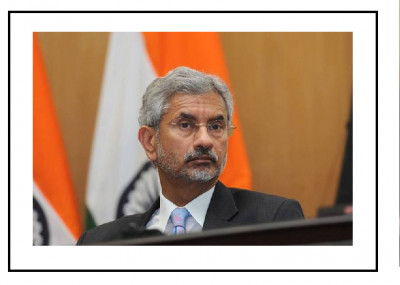
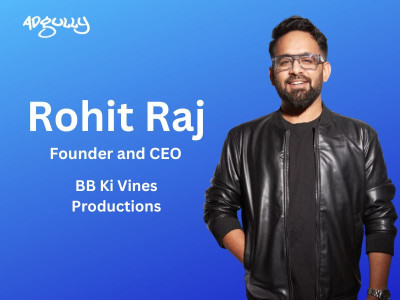
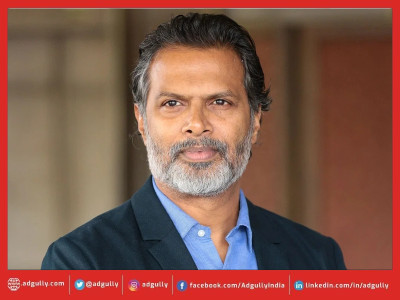
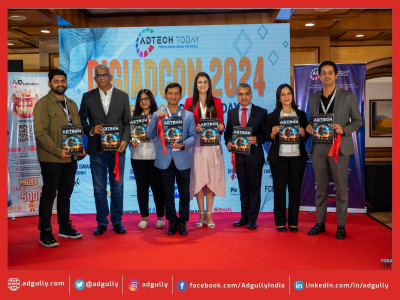
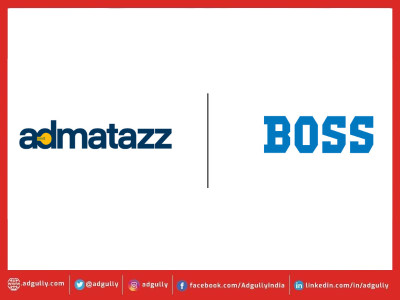


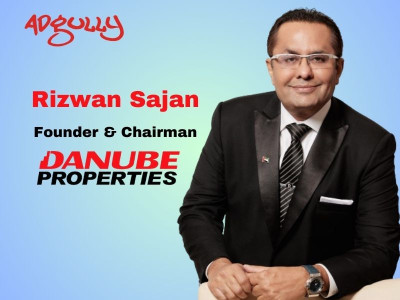
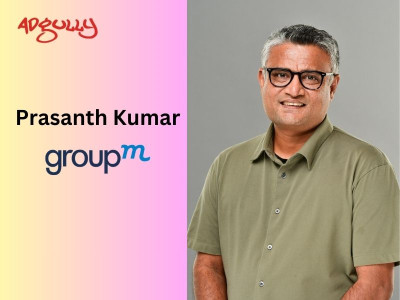

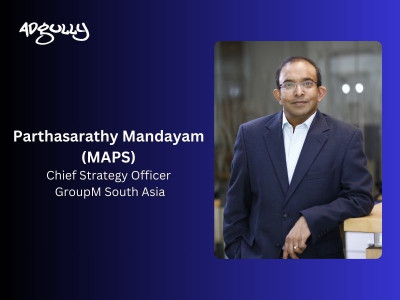
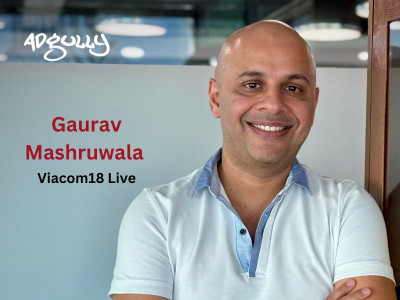


Share
Facebook
YouTube
Tweet
Twitter
LinkedIn